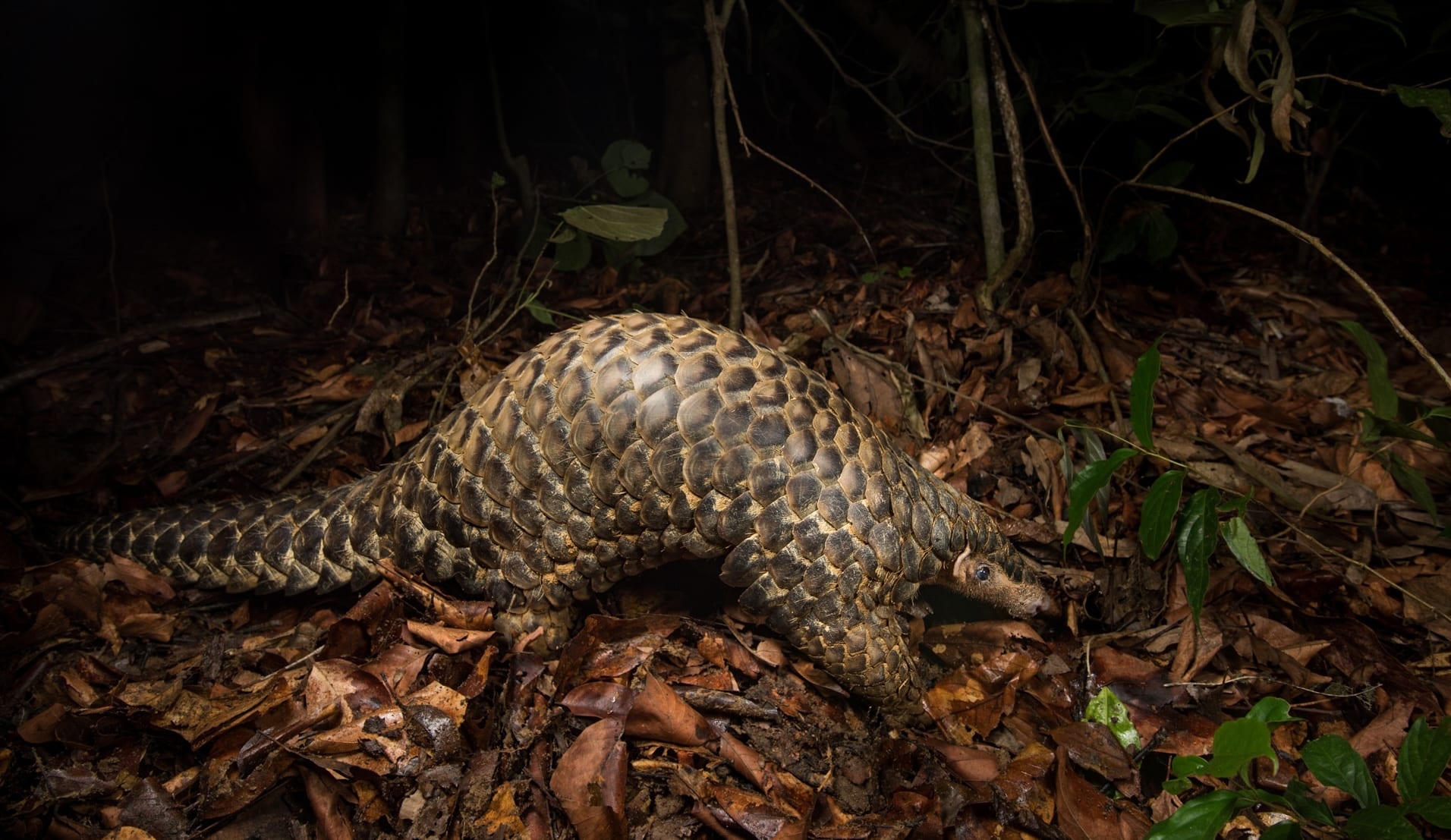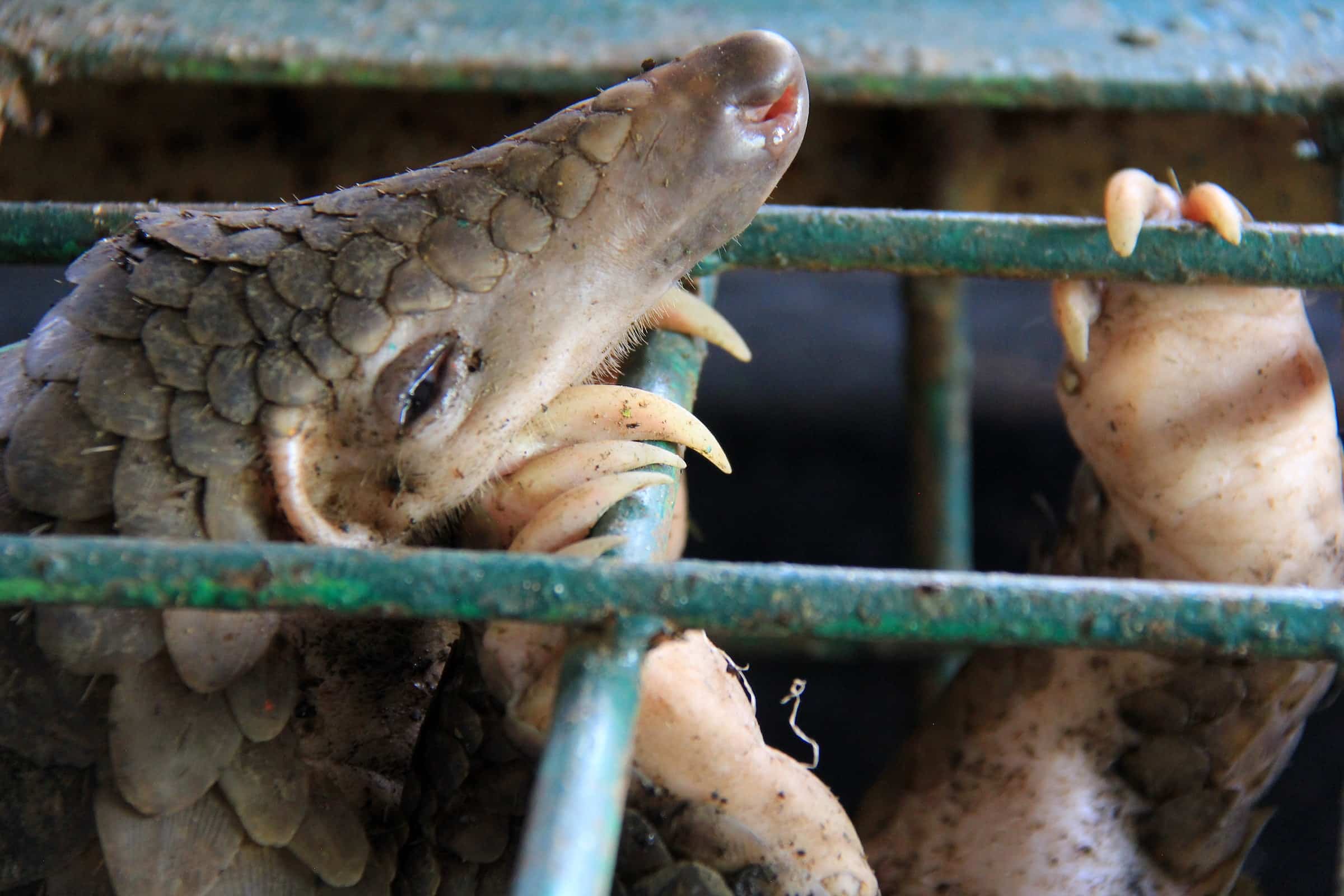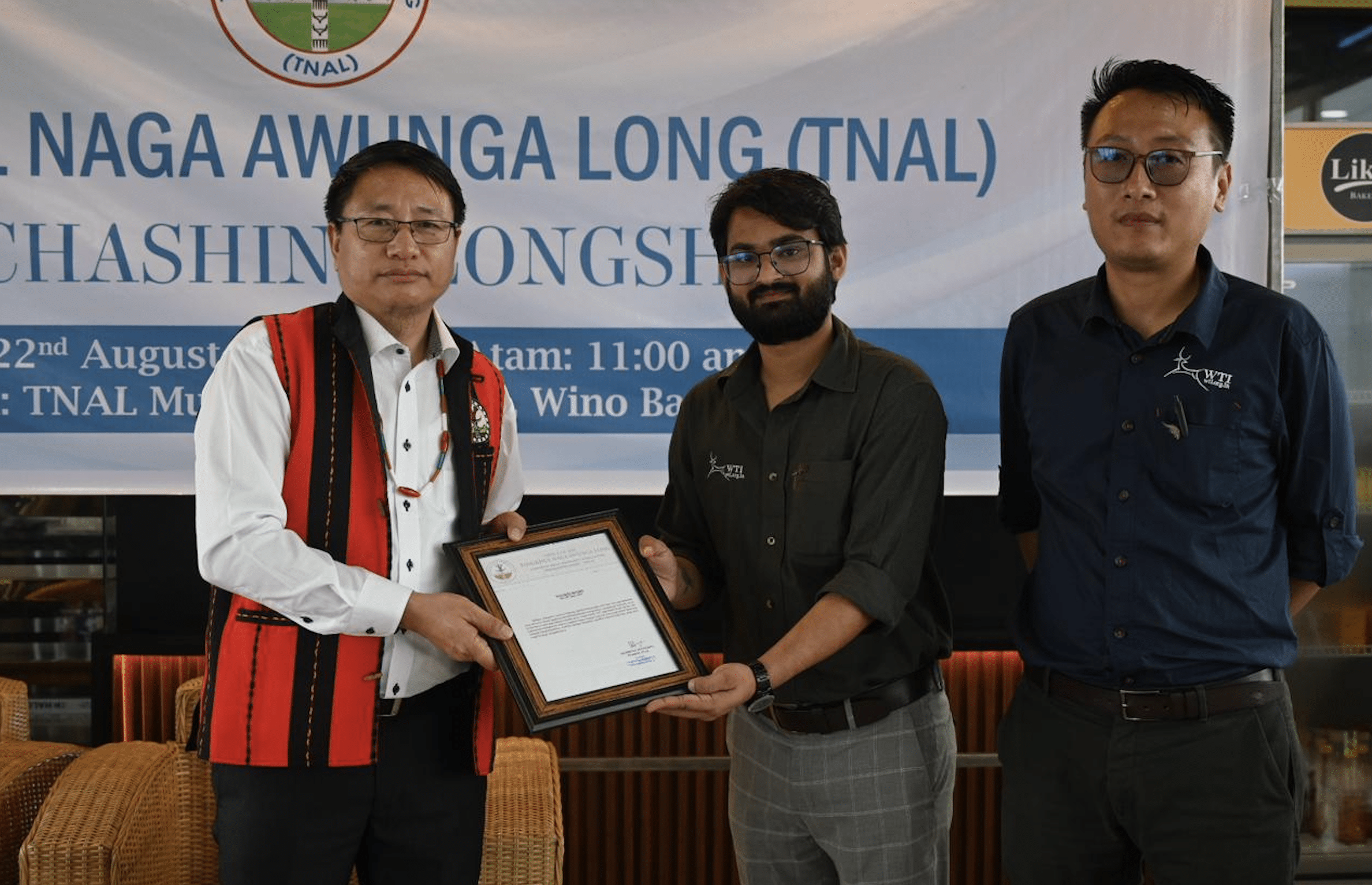In 2024, Jose Louies, Monesh Singh Tomar, and the small Wildlife Crime Control Division at Wildlife Trust of India made history working with local and Indigenous communities to protect pangolins in Northeast India. This is a critical landscape, not only because it is home to Critically Endangered Chinese pangolins and Endangered Indian pangolins, but because it is in close proximity to a major wildlife trafficking route.
Pangolins were hunted in this area and trafficked through Myanmar to the Golden Triangle, a border area where Thailand, Myanmar, and Laos meet. The Golden Triangle is one of the biggest trafficking corridors in the world for countless wildlife species, as well as drugs like heroin, opium, and methamphetamine. People, particularly women and girls, are also trafficked through this region for exploitation. This combination of illegal trades makes this one of the most dangerous areas in the world for conservationists to operate in. It is unsurprising that few NGOs have dared to tackle wildlife trafficking in Northeast India because of its close proximity to this lawless region.
Despite their small size, the Wildlife Trust of India’s Wildlife Crime Control Division packs a serious punch. Jose and his team recognised the critical need to protect pangolins in Northeast India, and undaunted, they set to work. Shortly after the team began, violence erupted across the state of Manipur where they were working, but the Wildlife Trust of India remained undeterred. They had designed a sophisticated strategy to work with Indigenous leaders as well as the Catholic and Methodist churches, which are very influential in this region. This gave Jose’s team passage to work in this area where even state law enforcement access was limited.
The Pangolin Crisis Fund (PCF) supported the Wildlife Trust of India team throughout this major endeavor. As PCF Director, I visited the area with Jose and Monesh in February 2023 and immediately saw the potential. Because of the flexible nature of the Wildlife Conservation Network’s Wildlife Fund model, we were able to allow the team to extend their project and change their budget as needed to deal with a rapidly changing security situation.
As a result of this important work, the Wildlife Trust of India has obtained binding agreements with the leaders of 252 regional villages not to hunt, consume, or trade pangolins in Manipur state—all in the span of just a single year. Such a commitment has never been achieved before in this area, representing substantial progress for pangolin conservation. These villages are already demonstrating their dedication to this agreement, including in the form of rescuing and releasing pangolins.
The PCF is excited to continue our partnership with Wildlife Trust of India and expand the project to the neighbouring state of Nagaland with a long-term vision of making Northeast India a safe area for pangolins.




